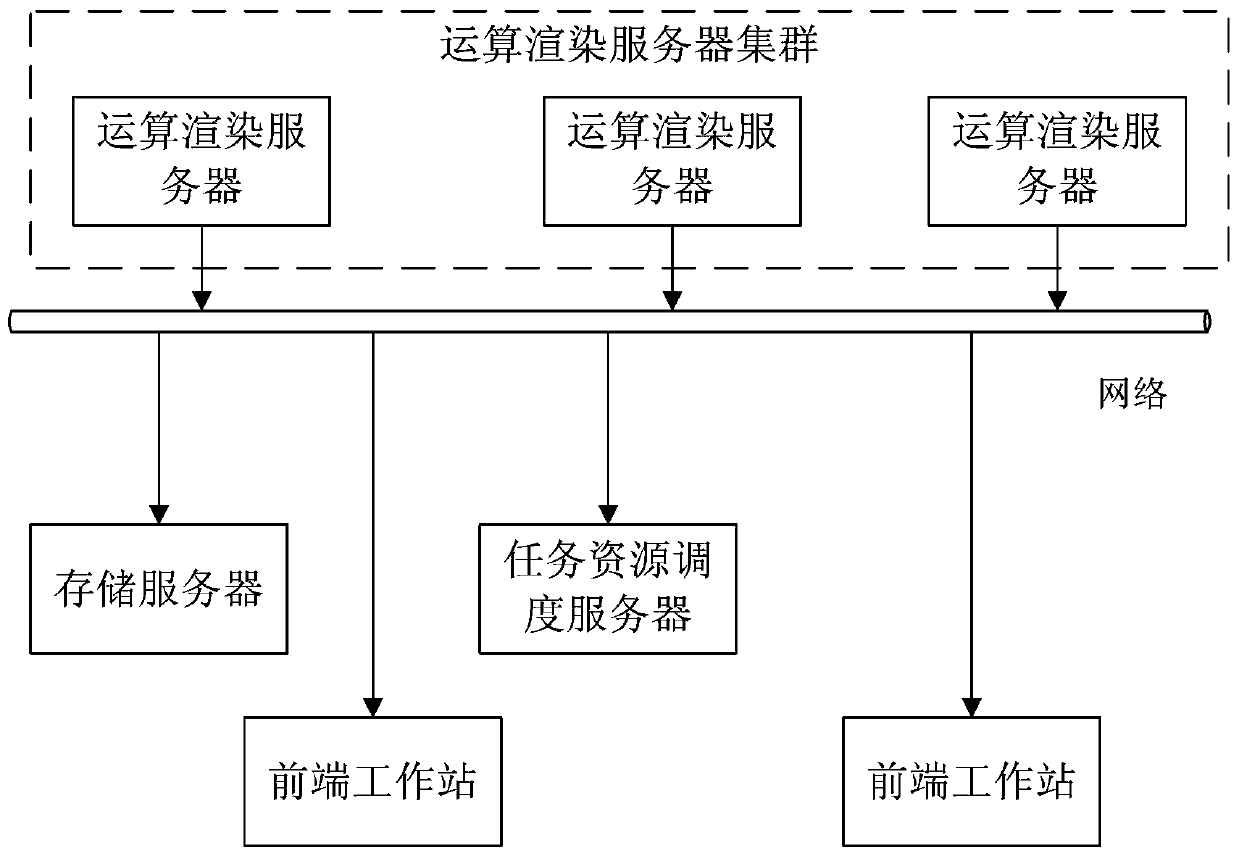A Stereoscopic TV Signal Editing Method Based on Cluster Rendering
A stereoscopic TV and editing technology, which is applied in the direction of TV, color TV, color TV parts, etc., can solve the problems of impossibility, large amount of calculation, laboriousness, etc., and achieve the effect of avoiding jamming
- Summary
- Abstract
- Description
- Claims
- Application Information
AI Technical Summary
Problems solved by technology
Method used
Image
Examples
Embodiment 1
[0031] This embodiment is a method for editing stereoscopic TV signals based on cluster rendering. The schematic diagram of the system used in the method is as figure 1 shown. figure 1 The computing and rendering server cluster in the figure only shows 3 servers, but there can actually be 4, 5, 6, or even more, and there can be 2, 3, 4, or even more front-end workstations.
[0032] The steps of the method described in this embodiment are as follows, and the flow chart is as follows figure 2 Shown:
[0033] The steps of preparing for the acquisition and storage of the stereoscopic TV signal: it is used to acquire and save the video signals of the stereo camera at the same time, and mark the time code of each frame of the video according to the unified time standard for each video of the acquisition. The collected original video files are stored in the storage server in a unified manner.
[0034] Acquisition and storage of stereoscopic TV signals: collect and save the video...
Embodiment 2
[0065] This embodiment is an improvement of the first embodiment, and is a refinement of the steps of the first embodiment regarding result transmission. In the step of result transmission described in this embodiment, every time the computing and rendering server completes a frame of video image, it transmits it to the front-end workstation in time, and the front-end workstation compares the computing result and the multi-channel rendered video image information for each of the same time code frame After the video is decoded, corrected and processed in time, it can be sent for display, while the 3D TV video picture information decoded, corrected and processed in advance will be cached in the local memory of the front-end workstation, and sent to the 3D display device for display at an appropriate time come out.
Embodiment 3
[0067]This embodiment is an improvement of the first embodiment, and is a refinement of the steps of the first embodiment regarding result transmission. In the step of result transmission described in this embodiment, the front-end workstation judges whether the current network speed and bandwidth meet the transmission requirements of the uncompressed video images of each 3D TV. Ask for uncompressed video data; if the network speed and bandwidth cannot meet the transmission requirements of uncompressed video images, the front-end workstation will request compressed video data from the computing rendering server currently responsible for decoding and processing the image video of this channel, and will receive the received video data Decode the compressed video data.
PUM
 Login to View More
Login to View More Abstract
Description
Claims
Application Information
 Login to View More
Login to View More - R&D
- Intellectual Property
- Life Sciences
- Materials
- Tech Scout
- Unparalleled Data Quality
- Higher Quality Content
- 60% Fewer Hallucinations
Browse by: Latest US Patents, China's latest patents, Technical Efficacy Thesaurus, Application Domain, Technology Topic, Popular Technical Reports.
© 2025 PatSnap. All rights reserved.Legal|Privacy policy|Modern Slavery Act Transparency Statement|Sitemap|About US| Contact US: help@patsnap.com


